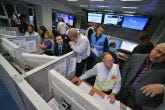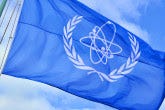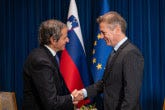LLAW’s All Things Nuclear #777, Friday, (10/11/2024)
“End Nuclear Insanity Before Nuclear Insanity Ends Humanity”
Russian Ambassador Anatoly Antonov served as deputy minister of foreign affairs and defense before being appointed as Moscow's most senior diplomat in Washington in August 2017. (See AP photo credits in the article)
LLAW’s NUCLEAR VIEWS, ISSUES & COMMENTS, Friday, (10/11/2024)
This article, courtesy of “Newsweek” is an up to the moment comprehensive report on the current and serious situation among Russia, Ukraine, the United States, Britain, the rest of NATO, and possibly the entire world.
The firing and timing of the Russian Ambassador by Putin seems to me to possibly be intentionally related to the U.S. presidential election, which may also be due to Donald J. Trump’s candidacy who has long been known to have a close and possibly illegal personal relationship (Logan Act violation) to Vladimir Putin, which has been suggested in Pulitzer Prize winner Bob Woodward’s new book “War” to be released on October 15th.
There are also links to important older but related stories posted at the end of this informative and extremely harrowing current situation that could flare like an out of control forest fire into the first and last all-out nuclear war . . . ~llaw
Exclusive: Russia Ambassador Exits US With Warning of 'Nuclear Catastrophe'
Published Oct 10, 2024 at 4:31 PM EDTUpdated Oct 11, 2024 at 12:03 AM EDT
00:59
Putin Fires U.S. Ambassador
By Tom O'Connor
Senior Writer, Foreign Policy & Deputy Editor, National Security and Foreign Policy
269
Russia's top envoy to the United States has ended his term, leaving behind an ominous forecast about the risk of deteriorating bilateral ties escalating into a nuclear-armed clash over the ongoing war in Ukraine in an exclusive interview with Newsweek.
The Kremlin announced on Thursday that Russian Ambassador Anatoly Antonov had been officially relieved of his duty after seven years of service. In the lead-up to his departure, Antonov spoke with Newsweek about the troubled state of relations between Moscow and Washington, which show no signs of improving as the war in Ukraine continues and NATO doubles down on military support for Kyiv amid recent advances by the Russian military.
'"Project Ukraine' is dragging American politicians only further into an abyss, from which it is increasingly difficult to get out," Antonov told Newsweek. "As we see, the administration can only respond to the victories of Russian troops in Donbas and the failure of the provocation by the Ukrainian armed forces in the Kursk region by using the same hackneyed theses about 'support as long as we can.'"
"There are zero signals to clients about the need to think over their position and sit down at the negotiating table," he added. "Neither are there any hints about stopping the senseless flow of weapons at the expense of the local taxpayer."
Instead, he argued that "Washington is continuing a dangerous discussion about the possibility of giving Ukrainians a permission to strike deep into Russian territory with Western long-range missiles."
Such talk threatened to defy the latest ultimatum issued by Russian President Vladimir Putin, who has repeatedly warned against external intervention since first ordering a "special military operation" into Ukraine in February 2022.
"They refuse to take into account the clear warnings of the President of the Russian Federation that a 'green light' for such attacks would mean NATO's direct involvement in the conflict," Antonov said, "with all the following conclusions on our part."
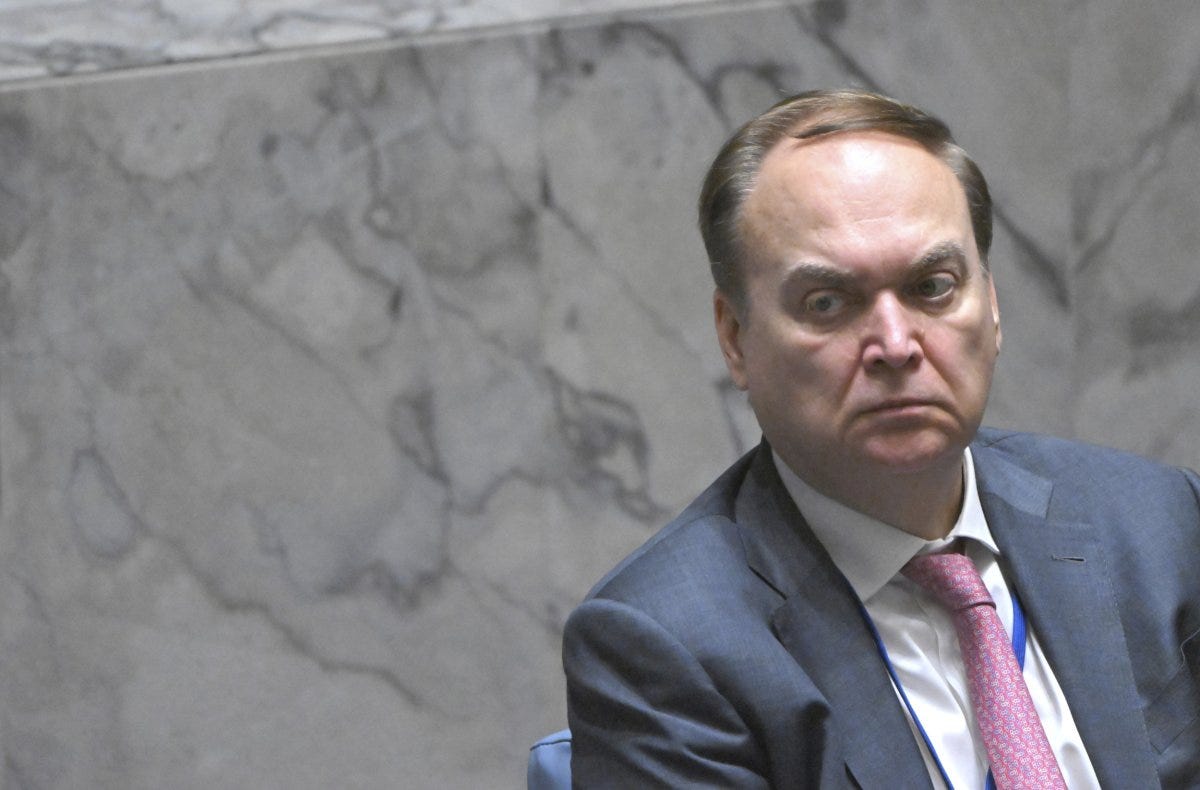
Divisions at Home and Abroad
Antonov served as deputy minister of foreign affairs and defense before being appointed as Moscow's most senior diplomat in Washington in August 2017. He became a vocal advocate for the Kremlin's position throughout the terms of U.S. Presidents Donald Trump and Joe Biden, who is also set to vacate his office soon as Vice President Kamala Harris gears up for a tight race against Trump next month.
Antonov said he had "no desire" to discuss the inner workings of U.S. politics today but observed that "local party strategists seem to be trying to come up with official statements for Ukraine to meet the demands of the U.S. current electoral cycle."
"These people are not interested in the fate of Europeans and Kiev," Antonov said. "They are only interested in the digits in public opinion polls, which supposedly can be adjusted in their favor if they demonstrate 'determination' and 'leadership.' This is pure recklessness."
He also identified a "divided" public discourse in the U.S.
"On one hand," Antonov said, "we see a lot of attempts by reasonable political scientists to understand the situation, find workable—at least in the eyes of the United States— options to end the conflict and develop an inter-party consensus based on a common understanding of the danger of collapsing into World War III."
"However, any voices of reason in Washington today are silenced or written off as 'Kremlin propaganda," he added. "The recent unjustified sanctions against Russian journalists are in this vein, as well as provocative attacks by local intelligence services against Dmitry Simes, Scott Ritter and compatriots living in America."
Antonov railed against what he called a "brutal 'cleansing' of the information space in America" via the prosecution and censorship of individuals accused of spreading Russian propaganda, sanctions and raids against state-backed Russian media outlets and other measures.
Such actions, he argued, target those "who call for a sober assessment of the risks of being dragged into a morass of the Eastern Europe conflict and the prospect of a head-on collision with a nuclear power, those who warn that sitting out overseas while others are dying, without any costs, is an illusion and self-deception."
Newsweek reached out to the U.S. State Department and the Ukrainian Embassy to the U.S. for comment.
Washington and Kyiv have long accused Moscow of spreading disinformation via state-sponsored campaigns intended to serve the Kremlin's interests.
Meanwhile, the Biden administration has declared an unwavering position to continue military assistance to Ukraine, and many NATO allies have offered similar pledges. However, the issue has proved increasingly polarizing in Western capitals, with some, including a number of Republicans in the U.S., expressing growing skepticism about the utility of the current strategy.
The division also runs through the upcoming U.S. election. Harris vows to continue with Biden's approach of supporting Ukraine until victory, while Trump has promised to quickly reach a deal that would put an end to what has become Europe's deadliest conflict since World War II.
But as these debates play out at a turbulent time for U.S. politics, Antonov accused U.S. think tanks of responding to "reasonable" publications with "poisonous commentaries about the harm of any conversation with 'the Russians'" and said that U.S. politicians prefer "to listen to 'hawks.'"
Rather than seeking peace, they discuss "creating hostilities between the Slavs, encouraging the killing of people, and intensifying military escalation," he argued.
"All this only confirms that the political elites have set themselves the task not just to defeat Russia but to preserve the old world order, based on the rules favorable to NATO countries," Antonov said. "We want to change this obviously outdated state of affairs. We want our security interests to be taken into account."
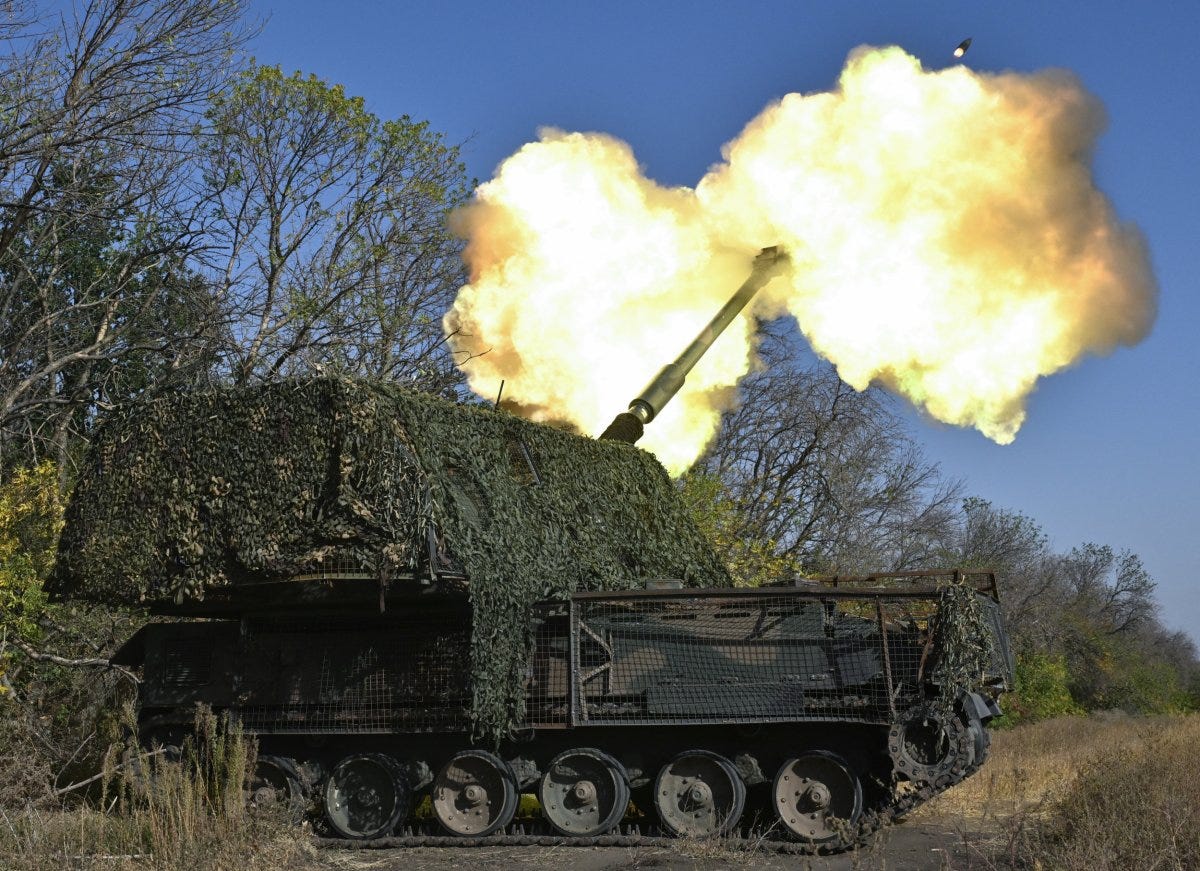
A Flashpoint in Flames
While Russia's large-scale war against Ukraine began in February 2022, the roots of the conflict could be traced back to seismic shifts in the global order that began decades earlier.
Since first assuming power on the eve of the 21st century, less than 10 years after the fall of the USSR, Putin has consistently argued against the growing presence of the U.S.-led NATO military alliance in the former Soviet sphere of influence. He has accused Western rivals of seeking to encircle Russia; Washington and its allies have argued that entry into NATO was voluntary and was often pursued due to the perceived threats of Russian aggression.
The geopolitical storm landed in Ukraine a decade ago, when a mass uprising supported by the U.S. in 2014 ousted the government in favor of leadership seeking closer ties with the West. Moscow condemned what it called a "coup" and sent forces to seize the Crimean Peninsula as Russia-aligned separatists rose in the eastern Donbas region.
Thus began the largest militarization on the continent since the Cold War, with NATO increasingly shoring up its position in Eastern Europe and Russia dedicating more troops and equipment to its western frontier.
As Russian troops began to amass in unprecedented numbers along Ukraine's borders in 2021, Moscow issued two proposals for demilitarizing that would effectively see NATO reduce its presence in regions near Russia's borders, to which Antonov said the response was "silence and smirks."
Talks quickly unraveled, and Putin ultimately resorted to force. Both sides continue to blame one another for setting the stage for conflict.
"In America, there is an unwillingness to recognize that over the past few decades, the West, led by Washington, has been rejecting Moscow's outstretched hand of cooperation again and again," Antonov said. "Year after year, it has been militarily 'exploiting' European territory, conducting waves of NATO expansion to the East."
"It has organized color revolutions and anti-constitutional coups," he said, "increasingly encircling Russia in a hostile 'ring,' and as the 'decisive battering ram' it chose Ukraine."
Antonov said that the Pentagon has gone so far as "to study the outcomes of using nuclear weapons on the agricultural sector of Eastern Europe, including Russia," including "modeling a global nuclear war scenario that will lead to the destruction, as Americans think for some reason, of only agricultural farms."
"Such simulations were actively conducted during the Cold War years," Antonov said. "It is noteworthy that even the American military started to contemplate a nuclear conflict."
"At the same time, they mistakenly believe that this catastrophe will only affect Europe and Russia," he added. "This is extremely short-sighted. America will not be able to sit it out across the ocean. A global nuclear catastrophe would affect everyone."
Now, Antonov said, "The objective maximum task at this stage is to prevent the ties between two great powers and permanent members of the Security Council from finally plunging into an uncontrolled nosedive."
"Russia, as a responsible state, is not interested in such an extremely dangerous development of the situation," he said. "We convey this idea to our interlocutors and the general public in America on a regular basis. We try to put it explicitly that an insatiable desire to achieve strategic victory on the battlefield over Russia is simply impossible."
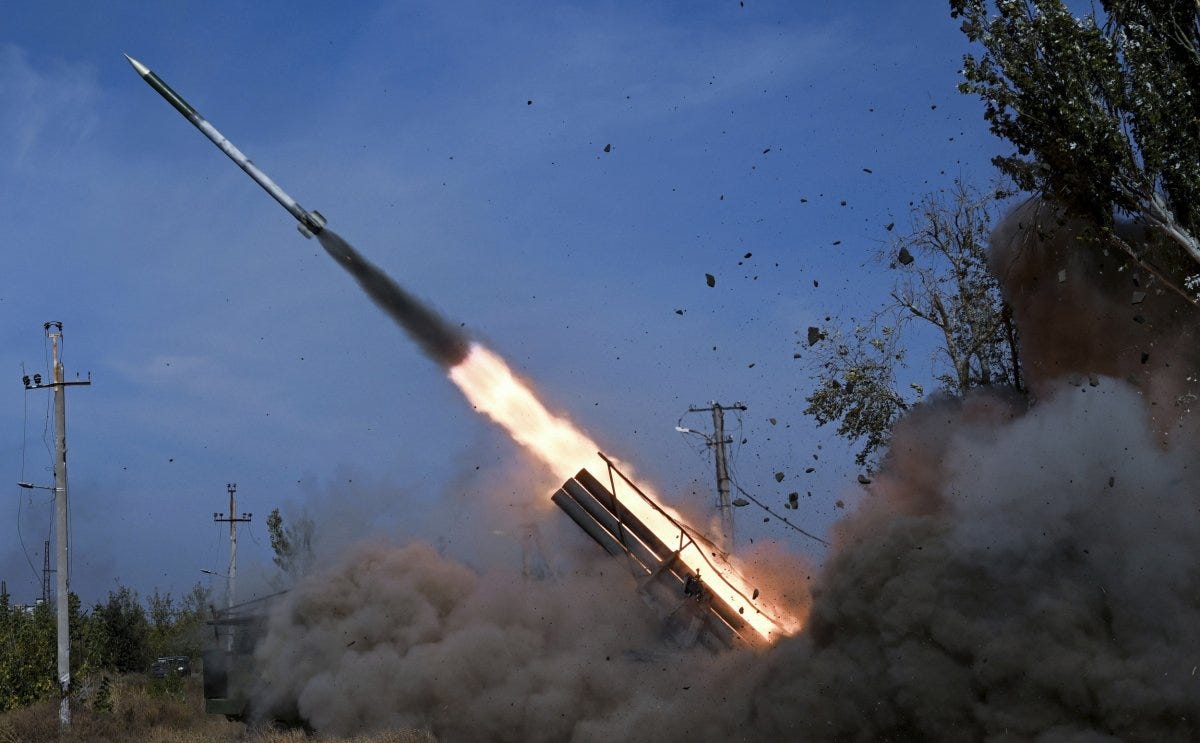
Rival Proposals
Several notable attempts have been made to achieve a diplomatic solution since the beginning of the conflict, including direct talks held in Belarus and Turkey in the early weeks. The discussions appeared to make the most progress in Istanbul in April 2022 but have since remained largely frozen.
Ukrainian President Volodymyr Zelensky has called for a resolution that would see Russian forces unconditionally withdraw from his country's territory, including four provinces annexed by Moscow in an internationally disputed referendum held in September 2022, as well as from Crimea, which was annexed in a similar vote after being captured by Russia in 2014. He's also stated that Russian officials, including Putin, must face accountability for alleged war crimes.
These core demands, which Russia outright rejected, were reportedly featured in the new "victory plan" presented by the Ukrainian leader to the White House last month. The plan was set to be unveiled this weekend at a summit in Germany, but the meeting was canceled after Biden pulled out to deal with the aftermath of Hurricane Milton.
Putin presented a new proposal of his own in June. This entailed Ukraine ceding the unilaterally Russian-annexed territories, Kyiv abandoning its desire to become a full NATO member, and other measures dismissed by Zelensky and his foreign backers.
Harris referred to the conditions of the Russian plan as "proposals for surrender, which is dangerous and unacceptable," during a meeting last month with Zelensky.
Trump has not responded directly to the Russian proposal but has said he had his own plan that would end the war "in 24 hours." While he has declined to offer details, his running mate, Senator J.D. Vance, has revealed the plan would likely include a "demilitarized zone" along the current line of demarcation between Russian and Ukrainian forces.
On the ground, the war has only intensified. Russian forces have advanced on several key axes, while Ukrainian forces have conducted strikes further into Russia itself, including a ground incursion into Kursk province.
Echoing the position expressed by Russian Foreign Minister Sergey Lavrov during an exclusive interview with Newsweek earlier this week, Antonov saw additional pledges of military assistance to Ukraine from the U.S. and other Western countries as a direct response to the Russian peace plan, resulting in new warnings from the Kremlin over growing foreign involvement in the conflict.
"Now, amid talks of long-range missiles, Vladimir Putin has sent a clear warning to the United States and its allies," Antonov said. "He reminded them of the direct involvement of American so-called 'technical specialists' in planning and carrying out strikes against Russia."
Antonov compared the discussions surrounding providing such missiles to Ukraine to "a diver frozen before the decisive jump into the abyss." He added, "Just think about how far the Western elites have gone in their desire to profit from pitting two Slavic peoples against each other."
He also referenced the recent reports of a U.S.-supplied F-16 fighter jet being downed by friendly, potentially from a U.S.-supplied Patriot air defense system, as a "clear and obvious confirmation that the Ukrainian army is not ready to operate modern Western weapons."
Asked last month about the ongoing deliberations of allowing Ukraine to use long-range missiles to strike Russia, Biden simply said, "We're working that out right now." No policy changes have since been announced.
Later in September, State Department spokesperson Matthew Miller responded to a question about the use of U.S.-provided long-range missiles in the war by stating that there was no "one magic capability that would change the face of the conflict."
"We look at all of the capabilities and all the tactics and all the support that we provide Ukraine in totality," Miller said at the time, "and when we approve any new weapon system or any new tactic, we look at how it's going to affect the entire battlefield and Ukraine's entire strategy. And that's what we'll continue to do."
Last week, however, Zelensky accused Western partners of "dragging out" the supply of long-range weapons during a meeting with new NATO Secretary-General Mark Rutte.
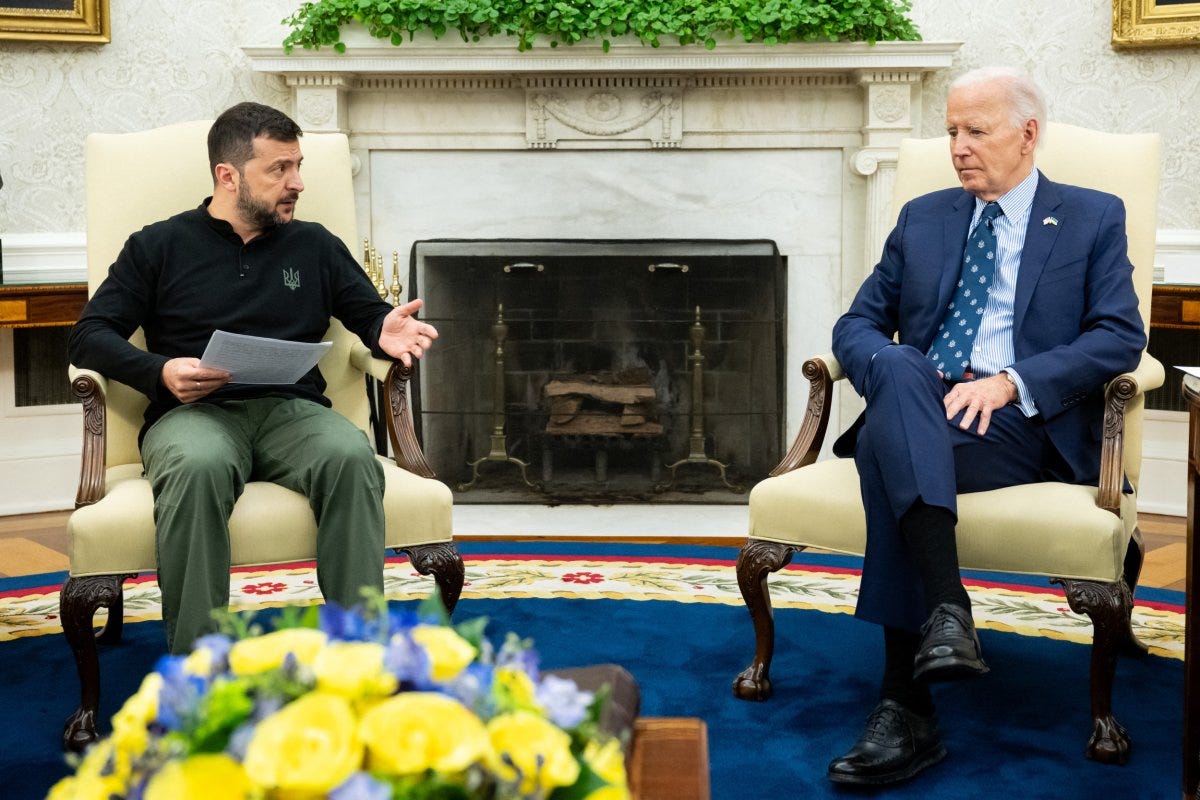
A 'Sobering' Farewell Message
Antonov left Washington in the midst of the most challenging period in the U.S.-Russia relationship since the end of the Cold War. While he continued to advocate for improved ties, he also acknowledged the depth of the bilateral deterioration between the world's top two nuclear powers.
"The average American reader, who sees and hears on a daily basis a stream of anti-Russian reports and articles from the media and notes Russophobic slogans coming from government officials and legislators, would hardly be surprised by an unsatisfactory assessment of bilateral ties between Russia and the U.S.," Antonov said.
"Relations between Moscow and Washington are going through an extremely turbulent period, arguably touching the lowest point in their history," he added. "Trust between our countries has been completely lost. With rare exceptions, almost all areas of interaction have been 'frozen.'"
He saw "only a few" politicians and organizations today that he said, "are trying to look behind the curtain of propaganda clichés and understand what really provoked this 'ice age' in Russian-American relations."
Otherwise, he saw few efforts "to take a critical look at the situation and try to understand the root causes of the downward spiral, rather than throwing out sharp accusations of 'unprovoked aggression,' 'imperialism,' and alleged attempts to subjugate nearly half of Europe."
In the White House, he described an administration that "continues to burn one bridge after another."
"We believe that normalization of relations is valuable in itself for either party," Antonov said. "It takes two to tango. We will not forcefully invite anyone to cooperate."
Antonov was not especially hopeful that the situation would change depending on whether Harris or Trump emerged victorious next month.
"We stay clear-eyed and understand that in the current circumstances, there is little chance for people who may assume power in the United States not to ultimately find themselves under the dense influence of the 'deep state' and corporate structures that are Russophobic towards Russia," Antonov said.
"The debris in Russia-U.S. relations is so huge that it is extremely difficult to clear it up even with very serious political will," he added. "Blind support for the Kiev regime and its terrorism on Russian territory puts an end to even an attempt to approach the discussion of normalization of relations."
With little indication of peace on the horizon and the threat of an even larger-scale confrontation still looming, Antonov cautioned against those who "believe that through controlled escalation it is possible to avoid the worst and weaken Russia, send it into oblivion—to the 'dump' of history."
"The main sobering message that is now required to avoid fatal mistakes is to stop and cease the openly hostile policy towards the Russian Federation," Antonov said. "Recognize that our country has national interests and a legitimate right to ensure the safety of its citizens, to have its own alternative viewpoint and the opportunity to share it with anyone who is interested in hearing it.
Read more Russia-Ukraine War
Russia Accuses Ukraine of Preparing NATO-Backed 'Chemical' Attack
Biden Warned Putin Not to Use Nuclear Weapons in Ukraine, New Book Says
Russia Sends 72-Year-Old American to Jail for Fighting for Ukraine
ABOUT THE FOLLOWING ACCESS TO “LLAW’S ALL THINGS NUCLEAR” RELATED MEDIA”:
There are 7 categories, with the latest addition, (#7) being a Friday weekly roundup of IAEA (International Atomic Energy Agency) global nuclear news stories. Also included is a bonus non-nuclear category for news about the Yellowstone caldera and other volcanic and caldera activity around the world that play an important role in humanity’s lives. The feature categories provide articles and information about ‘all things nuclear’ for you to pick from, usually with up to 3 links with headlines concerning the most important media stories in each category, but sometimes fewer and occasionally even none (especially so with the Yellowstone Caldera). The Categories are listed below in their usual order:
All Things Nuclear
Nuclear Power
Nuclear Power Emergencies
Nuclear War
Nuclear War Threats
Yellowstone Caldera (Note: There is one Yellowstone Caldera bonus story available in this evening’s Post.)
IAEA Weekly News (Friday’s only)
Whenever there is an underlined link to a Category media news story, if you press or click on the link provided, you no longer have to cut and paste to your web browser, since this Post’s link will take you directly to the article in your browser.
A current Digest of major nuclear media headlines with automated links is listed below by nuclear Category (in the above listed order). If a Category heading does not appear in the daily news Digest, it means there was no news reported from this Category today. Generally, the three best articles in each Category from around the nuclear world(s) are Posted. Occasionally, if a Post is important enough, it may be listed in multiple Categories.
TODAY’S NUCLEAR WORLD’S NEWS, Friday, (10/11/2024)
All Things Nuclear
NEWS
A Japanese organization of atomic bombing survivors wins the 2024 Nobel Peace Prize
Utah Public Radio
Politicians should know these things.” The Nobel Committee's award seemed to be a message for Iran, who some believe is trying to develop nuclear ...
Japanese organization of atomic bombing survivors wins 2024 Nobel Peace Prize - NEPM
NEPM
88.5 NEPM. All Things Considered. 88.5 NEPM. All Things Considered. Next Up: 6:30 PM Marketplace. 0:00. 0:00. All Things Considered. 88.5 NEPM. 0:00 0 ...
Nobel Peace Prize 2024 winner: All about Nihon Hidankyo, the Japanese atomic bombing ...
The Economic Times
This honor recognizes their lifelong commitment to nuclear disarmament and their influential role in fostering global opposition to nuclear weapons ...
Nuclear Power
NEWS
To meet US nuclear goals, big reactors need to get built today, DOE says - Canary Media
Canary Media
If America hopes to meet its grid decarbonization goals or its nuclear power targets, the country needs to deploy fission reactors in volume — and ...
Ukraine warns of Russian attack on nuclear plants - Washington Examiner
Washington Examiner
Ukraine is sounding the alarm over a possible Russian strike on its nuclear power plants more than two years after Moscow launched its invasion.
Ukraine warns nuclear plants at risk from Russian missiles - Financial Times
Financial Times
Ukraine has accused Russia of routing its missiles to fly over nuclear power plants “every day”, a military tactic that heightens the risk of atomic ...
Nuclear Power Emergencies
NEWS
From Preparedness to Resilience: The Role of the IAEA in Nuclear and Radiological ...
International Atomic Energy Agency
Ahead of the International Day for Disaster Risk Reduction on 13 October, we look at the role played by the IAEA's unique Incident and Emergency ...
ICYMI: Governor Ron DeSantis Issues Updates on State Response and Recovery Efforts for ...
Florida Disaster
Around 8:30 PM EDT last night, Hurricane Milton made landfall as a Category 3 hurricane with maximum sustained winds of 120 mph near Siesta Key in ...
Japan could boost LNG buys for emergency reserve to nearly 1 mln T a year, METI official says
Reuters
Japan is considering stepping up purchases of liquefied natural gas (LNG) for emergency needs to at least 12 cargoes a year from three now, ...
Nuclear War
NEWS
Exclusive: Russia Ambassador Exits US With Warning of 'Nuclear Catastrophe' - Newsweek
Newsweek
... nuclear-armed clash over the ongoing war in Ukraine in an exclusive interview with Newsweek. The Kremlin announced on Thursday that Russian ...
Iran Vs Israel Nuclear War? Can IDF Even Hit Tehran's Fortified 'N' Sites? Will US Be Forced To Act?
YouTube
On October 1, Iran launched hundreds of missiles at Israel, heightening fears of an imminent escalation in the ongoing conflict.
Sheffield drama Threads brings nuclear war fears to new audience - BBC
BBC
A television drama about a fictional nuclear attack on the city of Sheffield had a profound effect on many who watched it in the 1980s.
Nuclear War Threats
NEWS
Nobel Peace Prize Highlights Current-Day Risks of Nuclear Weapons
Union of Concerned Scientists
Coercive nuclear threats are substituting for effective diplomacy. The testimony of the Hibakusha demonstrates the grave risks we still run by the ...
NATO Announces Nuclear Drills as Nobel Goes to Atomic Weapon Abolitionists
Common Dreams
... nuclear weapons; and threats are being made to use nuclear weapons in ongoing warfare. At this moment in human history, it is worth reminding ...
Amid Ukraine, Mideast Conflicts, Nobel Peace Prize Awarded To Anti-Nuke Group - RFE/RL
RFE/RL
... threats are being made to use nuclear weapons as part of ongoing warfare." SEE ALSO: Russian, Iranian Presidents Meet As War Rages In Middle East
Yellowstone Caldera
NEWS
2025 satellite could provide new views of YNP - Buckrail
Buckrail
... Yellowstone National Park (YNP), according to the Yellowstone Volcano Observatory (YVO). This week's YVO Caldera Chronicles, written by Scott K.
IAEA Weekly News
11 October 2024
Read the top news and updates published on IAEA.org this week.
11 October 2024
From Preparedness to Resilience: The Role of the IAEA in Nuclear and Radiological Emergency Response
Ahead of the International Day for Disaster Risk Reduction on 13 October, we look at the role played by the IAEA’s unique Incident and Emergency Centre in preparing and responding to potential nuclear or radiological emergencies. Read more →
10 October 2024
Update 254 – IAEA Director General Statement on Situation in Ukraine
Ukraine’s Zaporizhzhya Nuclear Power Plant (ZNPP) has restored its connection to a 150 kilovolt (kV) power line that could be used as a back-up option for the plant, although the supplies of electricity needed for reactor cooling and other essential functions remain fragile, Director General Rafael Mariano Grossi of the International Atomic Energy Agency (IAEA) said today. Read more →
9 October 2024
IAEA Director General in Slovenia Before Key Nuclear Power Referendum
The IAEA Director General has engaged with Slovenian leaders and civil society today, in the lead up to a key referendum on expanding the country’s nuclear power programme. Read more →
8 October 2024
IAEA Experts Find Evidence of Microplastic Pollution in Antarctica from NUTEC Plastics Research Mission
A pioneering IAEA mission to Antarctica has found evidence of microplastic pollution in lakes, shorelines and the ocean. Read more →
7 October 2024
World Cotton Day: The Role of Nuclear Science
To mark World Cotton Day, the IAEA Director General has highlighted how nuclear science helps optimize the growth of the world’s most important natural fibre, at celebrations in Benin this morning. . Read more →






